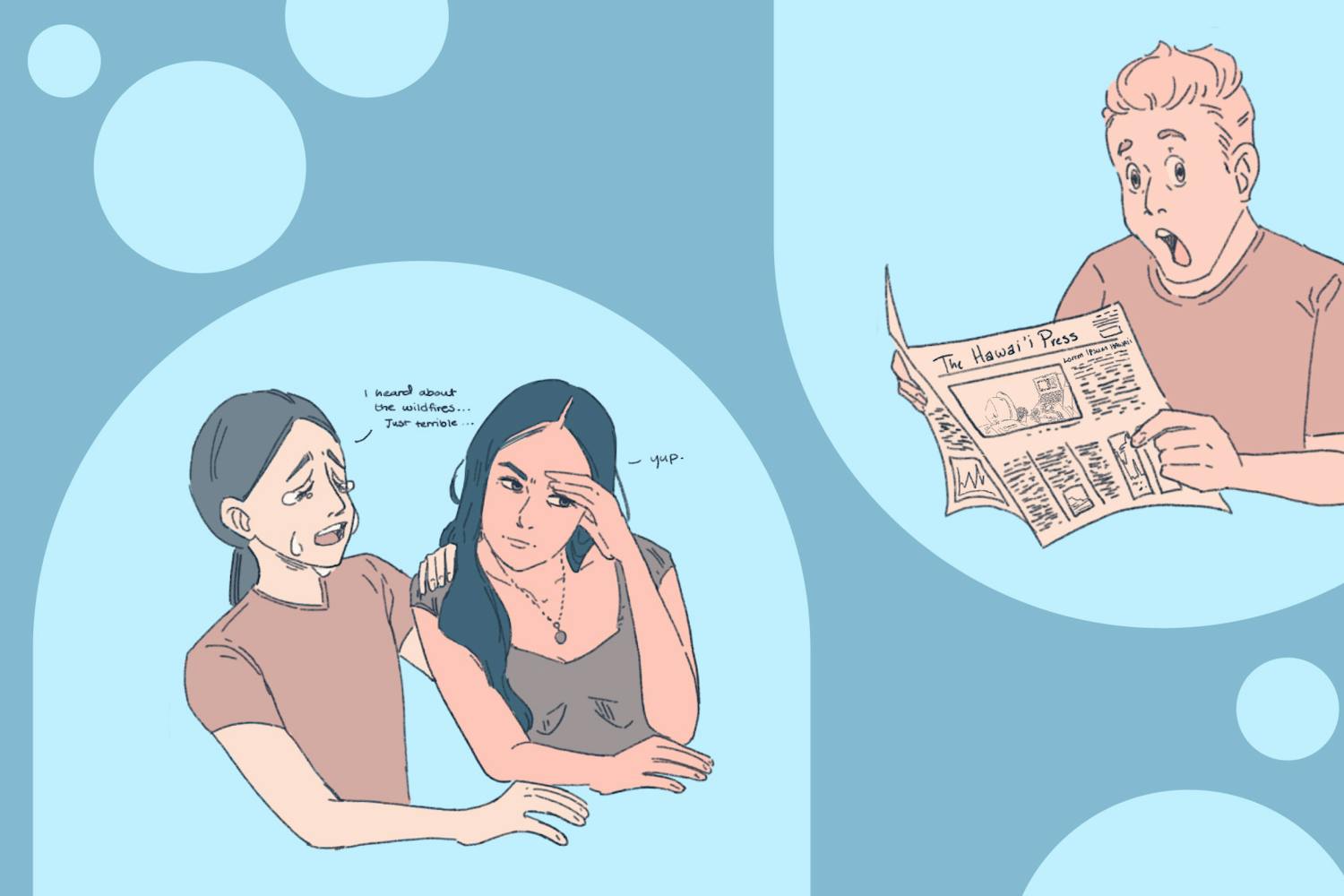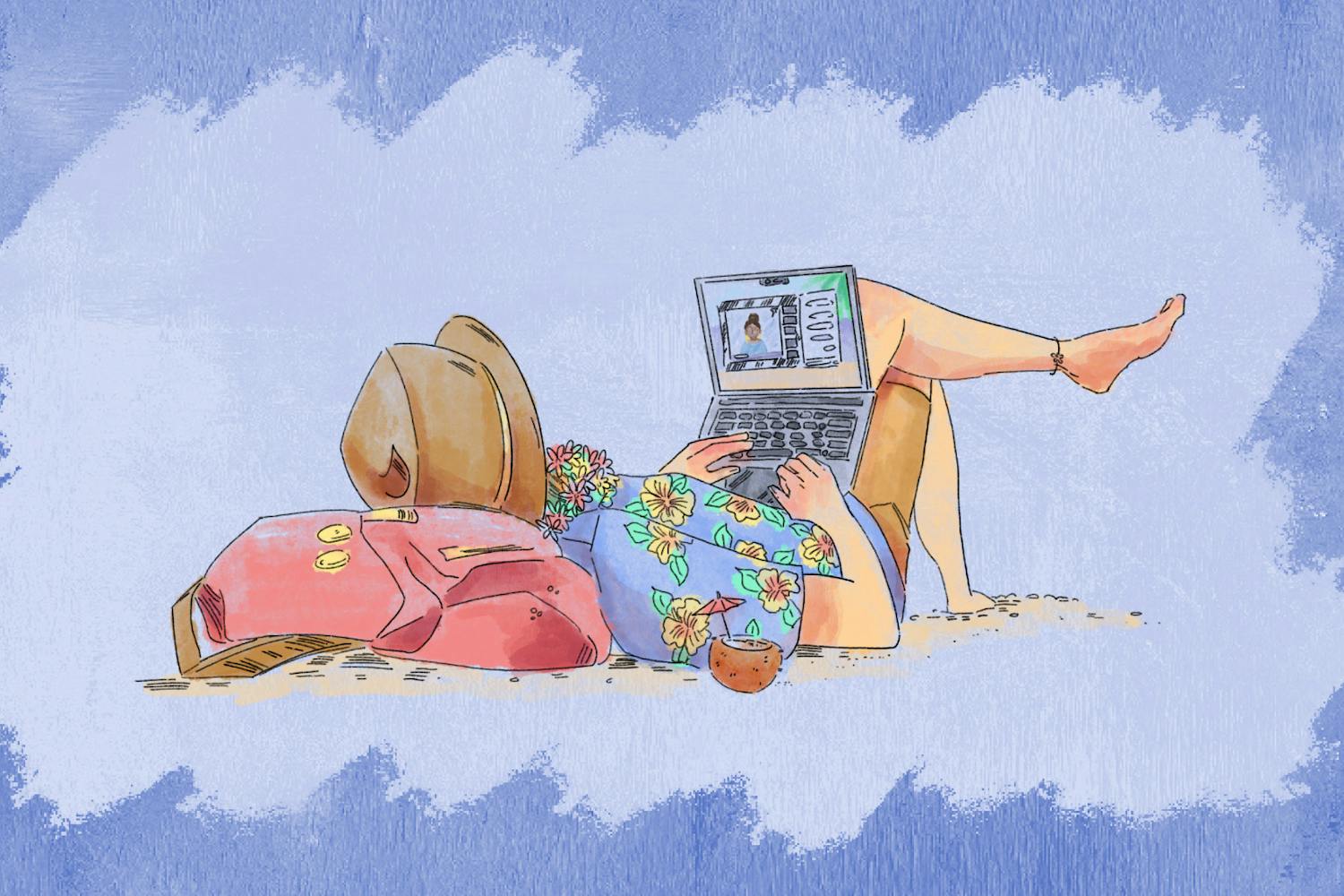 Sarah Noe is a student and active member in the upcoming campaigns. Photo by Daniel Santa Cruz
Sarah Noe is a student and active member in the upcoming campaigns. Photo by Daniel Santa Cruz
Political science sophomore Sarah Noe leans forward a bit, placing her hands on the metal table in front of her. She interned for the Arizona Democratic Party over the summer and has been working on the campaigns for the democratic candidates for State Representative Dr. Eric Meyer and State Senate candidate Kelli Butler for months now. In the midst of working other jobs and taking 18 credit hours, Noe has found time for knocking on doors in 100-plus degree heat, distributing campaign literature and making an incredible numbers of phone calls.
“It’s not easy, but I like being busy,” she says.
Does she look forward to not having the extra stress, responsibility and time commitment that come with her job? Her answer is emblematic of her attitude toward the campaign and politics in general: “I am looking forward to some free time, but more than that I’m looking forward to having Dr. Eric Meyer in the House and Kelli Butler in the Senate.”
The sentiment, that working for candidates and campaigns is worth it when it leads to the implementation of a better vision, is echoed by many students on campus in the lead-up to the general election on Nov. 4. Noe says she hopes that Meyer and Butler will improve Arizona’s generally abysmal educational performance, but there are plenty of other examples.
 Jonathan Ross is also actively involved with the current campaigns. Photo by Daniel Santa Cruz
Jonathan Ross is also actively involved with the current campaigns. Photo by Daniel Santa Cruz
Take political science and religious studies senior Jonathan Ross, who interns for Republican candidate for Secretary of State Michele Reagan. He wants to see an end to the dominance of dark money and the cessation of the practice of ballot harvesting, and views working on Reagan’s campaign as a step toward those end goals. Similarly, political science senior Dajana Zlati?anin supports gubernatorial Republican candidate Doug Ducey because of her interests in immigration and education. She donates her time (her international status prevents her from accepting paid work), because she truly believes in Ducey’s message.
ASU professor and political sociologist Michael Hechter says that students are often involved in campaigns and activism efforts because they might have extra time, and they will likely face fewer disincentives, such as getting fired from their jobs, for their political action. He finds it remarkable, though, that more college students aren’t active.
“Student loans and tuition are negatively impacting millions of students, but there seems to be limited action about this,” he says.
The statistics on youth activism are, indeed, a bit flabbergasting. Defying negative stereotypes of millennials as uninterested, unhelpful and apathetic, young Americans have been volunteering their time and energy at unprecedented rates. According to “The Fountain of Youth: Political Parties and the Mobilization of Young Americans,” a report from the Center for Political Participation at Allegheny College, young people are taking part at the same or higher rates than the rest of the population in all volunteer areas – except for political organizations. Millennials take part in these organizations at one-third of the rate for all Americans combined.
In addition, young people vote at far lower rates than any other generation. Fewer are interested in campaigns at all, according to the American National Electorate Study from the University of Michigan. From the 1980s to 2000, the percent of young people very interested in campaigns fell from 30 to six.
 Student Dajana Zlatic?anin is both a student and active participant in the upcoming elections. Photo by Daniel Santa Cruz
Student Dajana Zlatic?anin is both a student and active participant in the upcoming elections. Photo by Daniel Santa Cruz
Zlati?anin says that “so many students don’t think that politics matters to them, but I mention tuition, healthcare, the economy, immigration and minimum wage – that’s all politics.” Noe and Ross say this is as well – students should be more involved, because everything that our legislators and leaders do, on a state and national level, affects students.
Hechter can only hypothesize as to why students aren’t taking a more active interest in politics. “It could be because of decreased incentives. During the 1960s, there was the Vietnam War, there was the draft. That directly impacted peoples’ lives; it gave them a reason to riot and protest,” he says. Very literally, their lives were at stake. Student loans, arguably the major issue that most directly affects students, are still far removed from students' lives.
Yet for Ross, Noe and Zlati?anin, politics is a passion.
Zlati?anin took part in a study abroad in high school, coming from her native Montenegro to Illinois. She enjoyed her time in the United States, and decided to come back for college, deciding on ASU after staying in Phoenix. However, the high tuition forced her to spend her first two years of school at a community college.
“Back home, people are not motivated to vote; they feel like their vote doesn’t count. I know that it’s similar here, but there are amendments, there’s freedom of speech and people are more willing to speak out and stand up for their rights,” she says, which has inspired her to become more active in the elections.
She has a certain energy that makes it believable that she can, in fact, work 20 hours a week and be taking 24 credit hours and still have time to work on the Ducey campaign. “I don’t really know how I have time for it all,” she says; after reflecting for a small moment she adds, “It just kind of happens.”
She most enjoys planning events and being surrounded by the politicians that she reads about – understandable, since she can see herself running for office in the future. Though she thinks she might want to be a linguist or an analyst for the CIA, farther down the line, she says, “I can definitely see myself running for Congress or the Senate in the future, if my immigration works out.”
This is a common theme. Jonathan Ross says that, after having worked in the State Legislature, he sees the tremendous influence that even local politicians have. “I would definitely like to be an advocate for our schools at some point,” he says. He’s even thinking of running for school board in the not-too-distant future.
Ross is initially from New York City; during his time there, he became politically involved by doing candidate outreach with Russian speakers – helping them understand the issues and get involved in political action. Still, when he entered ASU, he planned to major in biomedical engineering. It wasn’t until later that law and representing people interested him, and he switched to a more political focus.
While working in the State Legislature, he met Michele Reagan, a Senator representing the Scottsdale area. Ross believes in Reagan’s vision for the Secretary of State, and has supported her campaign since its early stages.
During the primary, he was responsible for going door to door, handing out materials across the state and putting up signs. Now that the primary is over, he has transitioned to being more of an assistant to Reagan and has now become more involved in events. “I’ve had to be kind of on call, which can be hard since this is a statewide race; there’s a fair amount of travel,” he says in his soft but assured voice.
Campaigning is an incredible amount of very stressful work. But, he says, “when you’re passionate about an issue, you put aside this stress to work for what you believe in.”
Even with all the stress, it’s refreshing to hear some of the lighter moments of campaigning. Sarah Noe enjoys talking to the people, and can find the humor in it, saying, “canvassing can be hilarious. I’ve had people come out half-naked or less, I’ve had people threaten to sue. One guy, even, pretended to be someone who used to live at his address but didn’t anymore.” Canvassing, too, has affirmed her belief in the basic decency of humans. For all the odd people she encounters, there are those that listen and take her message to heart.
Noe, too, thinks that she may make a run for office. She’s interested in social justice and equality, and would like to work as a lawyer to fight for those rights. After that, though, she thinks she may even see herself in the House of Representatives or the Senate.
With their work, Noe, Ross and Zlati?anin embody the idea that perhaps there’s something about truly being interested and involved, in believing in someone’s message so much that they’re willing to accept the time crunch and the stress, to brave the strange people and the heat stroke.
Reach the writer at eric.w.dunn@asu.edu.



